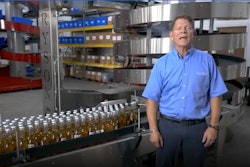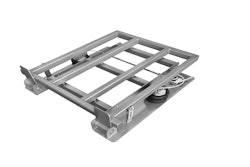Errol Raghubeer, PhD, Sr. VP- Microbiology Food Technology at JBT Corporation, presented a PACK EXPO Connects Innovation Stage this afternoon, and said that the primary reason for this trend in the food industry is a general movement of consumers from animal-based to organic plant-based products.
The reasons, said Raghubeer, are associated with nutrition and health, the need for more protein in diets, a general concern for animal welfare and how meat products are produced and sourced, sustainability and ecological impacts, and an overall concern of animal-borne diseases.
The availability of plant-based organic ingredients is driving R&D innovations from large companies such as food manufacturers, ingredient suppliers, and food service establishments, restaurants, etc.
“There is also a growth in vegan diets in North America and Europe, and a concern for health and immunity, particularly in this time of the COVID pandemic,” said Raghubeer.
Plant-based meat items is the leading category of plant-based protein products in the market, and big companies are leading the strength in these plant-based meats. It is estimated that the market will be about $30 billion US dollars by 2025. Some of the major companies that are involved include Tyson, Hormel in agreement with Papa John's, where they manufacture plant-based toppings for Papa John's, Kellogg, Morning Star Division, Impossible Burger, Beyond Meat, and Maple Leaf Foods of Canada.
The other major segment of plant-based products is the plant-based dairy. In the US in 2019, the market was $2.0 billion US dollars. This includes categories of milk, yogurt, dips, desserts, and spreads.
“However,” said Raghubeer, “there are challenges with plant-based protein products, allergens products, such as soy wheat tree nuts legumes have polygenic components to them to a significant group of the population. One other issue with plant-based items is that they tend to have a long ingredients list. This is especially of concern currently because consumers are looking for less ingredients on their ingredients statement and their food packages. Impossible Burger has 21 ingredients, Beyond Meat 17 ingredients. There's also some concern with GMO ingredients, as suppliers of these products increased their production. They may be using some of the genetically modified practices to increase their yield.”
HPP, Raghubeer explained, uses ultra-high pressure purified water to keep packaged food pathogen-free to stay fresh longer. At very high pressures bacteria such as Listeria, E. coli, and Salmonella are inactivated.
HPP is a natural process that eliminates the need for chemical food preservatives, and with it, pressure is transmitted uniformly and instantaneously through the product.
One example Raghubeer gave of HPP’s benefits was with HPP versus flash pasteurization versus conventional pasteurization, comparing the results of non-treated fresh orange juice. With HPP, there was no significant loss in vitamin C or folic acid, as well as niacin. With flash pasteurization there is a decrease in vitamin C as well as the folic acid. And with conventional heat pasteurization, basically all of the vitamins are lost.
Some of the other benefits to using HPP for plant-based products are a shortened ingredient list and reduced allergenicity of some materials.
To see the specifics of Raghubeer’s results, and to see HPP examples in action, watch the presentation here, available through March 31, 2021. To see more PACK EXPO Connects, click here.





















